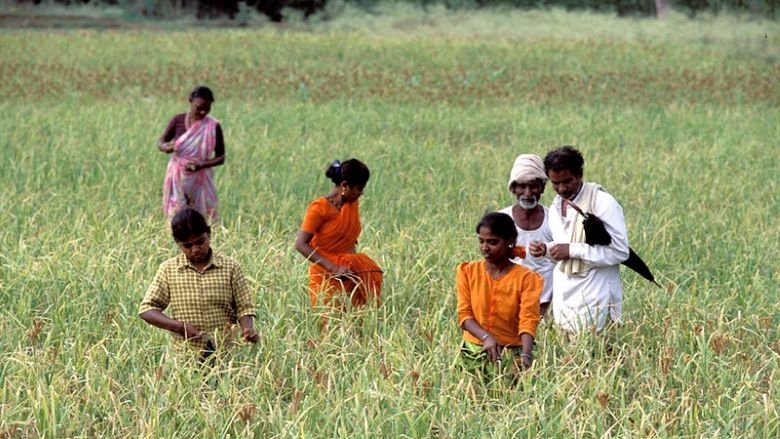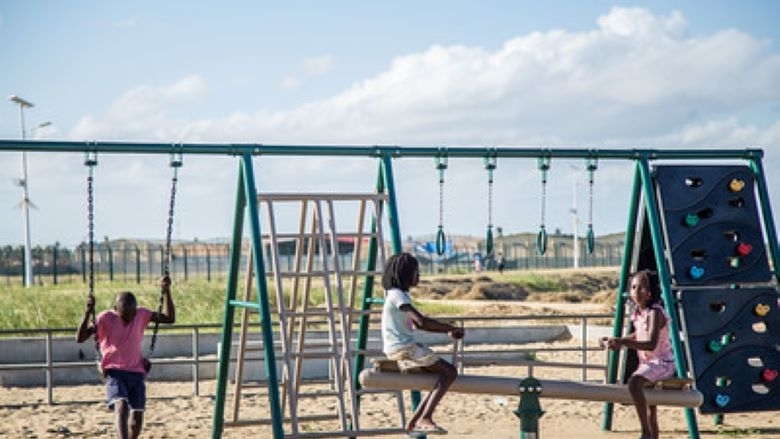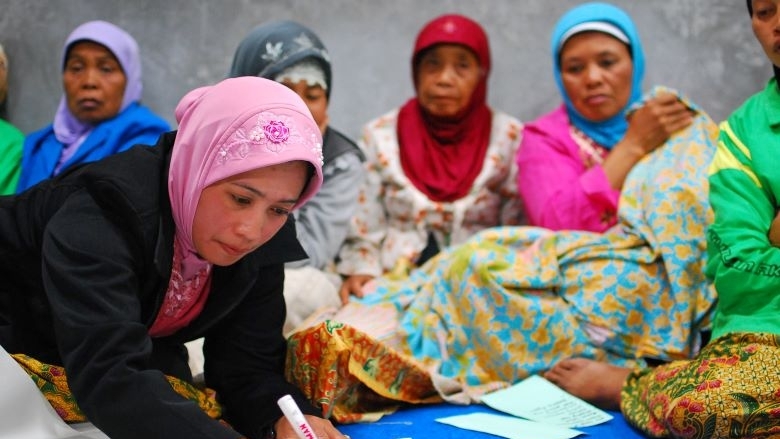Welcome to Research Insights, a knowledge space dedicated to collecting, condensing, and communicating policy-relevant findings from our team's research. Each edition offers concise and accessible summaries of the most impactful studies, ensuring that policymakers, practitioners, and stakeholders stay informed about the latest developments and evidence in the field. Our goal is to bridge the gap between complex research and practical application, fostering informed decision-making and effective policy design.
Check our latest edition below. You can also access previous editions here.
October 2025: What Works in Agriculture: New Evidence for Resilient Growth
Agriculture underpins livelihoods and food security across the globe—but it lifts incomes only when farmers are able to raise productivity, scale operations, and connect to structured value chains. The recent Annual Meetings emphasized this imperative, underscoring the role of smart policy and targeted support in transforming agriculture.
This edition of Research Insights brings together new evidence on how to strengthen the foundations of agricultural growth and resilience. From agribusiness networks in global value chains to conflict-sensitive monitoring tools, and inclusive land institutions, the studies featured here explore how effective policy design and implementation can help farmers overcome constraints and unlock opportunities.
Research from Africa demonstrates how secure land rights—enabled by low-cost, transparent systems—can empower farmers and expand access to finance. In Sri Lanka, the unintended consequences of an abrupt fertilizer ban underscore the need for gradual, well-supported transitions in agriculture. New evidence from Ukraine shows how satellite imagery can serve as a scalable and objective method to assess agricultural damage in conflict zones, helping prioritize recovery efforts. Finally, global analysis of agribusiness networks reveals that firms with diverse and robust supply chains are better equipped to withstand shocks, offering lessons for strengthening agri-food networks.
💡 Research Highlights:
| Building Resilient Agribusiness Networks for Global Shocks Anne Beck (Development Research Group), Sunghun Lim (Louisiana State University), and Daria Taglioni (Development Research Group) | |
| From trade tensions and pandemics to climate shocks, global agricultural value chains have faced unprecedented disruptions in recent years, highlighting the need for resilient supply networks. Analyzing firm-to-firm connections among 17,500 agribusinesses worldwide, this study finds that companies with diverse and robust customer and supplier relationships are better able to withstand shocks and less likely to exit the industry. The findings point to a dual strategy: firms consolidate supply chains with trusted partners while diversifying across industries and geographies to manage risk. From a policy perspective, supporting the development of adaptable and well-connected networks can help stabilize agri-food supply chains, strengthen resilience, and safeguard food security. Read more> |
| Measuring the Hidden Costs of Conflict on Agriculture with Satellite Data Klaus Deininger (Development Research Group), Daniel Ayalew Ali (Development Research Group), Nataliia Kussul (Igor Sigorsky Kyiv Polytechnic Institute), Guido Lemoine (Joint Research Center of the European Commission), Andrii Shelestov (Igor Sigorsky Kyiv Polytechnic Institute), Leonid Shumilo (University of Maryland) | |
 | Conflict can severely disrupt agricultural production, yet measuring its impact remains a challenge in data-scarce environments. This study leverages satellite imagery to measure the impact of Russia’s invasion of Ukraine on agricultural cultivation. The findings reveal that the damage to Ukrainian farmland is three times higher, and far more persistent and widespread, than previously estimated. By providing a scalable, timely, and objective method to monitor agricultural losses, this approach can guide post-conflict interventions. For example, data on conflict damage could inform de-mining efforts and help prioritize reconstruction actions in areas with the highest need, ultimately safeguarding food security and supporting resilience-building in fragile settings. Read more> |
| Empowering Farmers and Building Rural Resilience with Better Land Institutions Klaus Deininger (Development Research Group), Aparajita Goyal (Africa Chief Economist Office) | |
 | Across Africa, farmers face high risks from climate change, natural disasters, and limited access to credit and insurance. Weak land institutions worsen these challenges, discouraging investment and slowing productivity growth. This study shows that secure and transparent land rights can enhance rural resilience by allowing farmers to rent, transfer, or use land as collateral—helping them diversify income and invest in higher-value activities. In Rwanda, low-cost land registration using satellite imagery improved tenure security, increased investment (especially in soil conservation), and strengthened women’s land rights. Similar reforms in Ethiopia improved land rental markets, created opportunities for young farmers, and provide the basis for establishing a digital farmer registry. Scaling up such affordable, transparent, and gender-inclusive land systems is key to expanding rural finance and building a more climate-resilient agricultural sector. Read the article or explore the report> |
| Unintended Impacts of Sri Lanka’s Fertilizer Import Bans Devaki Ghose (Development Research Group), Eduardo Fraga (London Business School), Ana Fernandes (Development Research Group) | |
 | Sri Lanka’s import of chemical fertilizers almost dropped completely after the country implemented a ban in 2021, aiming to transition to more organic methods of agriculture and reduce foreign exchange outflows. As a result, rice and tea yields fell sharply. The most affected firms saw a 35% drop in agricultural exports, and welfare losses were equivalent to a 4.35% average income reduction—with much larger losses for farmers and estate workers. Organic fertilizers were unable to fill the gap, and the ban’s goal of saving foreign exchange was undermined as export losses offset nearly half the savings from reduced imports. The findings highlight the need for gradual, well-supported transitions to sustainable farming and the importance of careful trade and subsidy policy design. Read more> |
📰 News & Calls for Papers:
- Submission Deadline: November 5, 2025. PhD candidates are invited to submit their job market paper to the Development Impact blog. Selected entries will appear as guest entries, offering a platform to showcase candidates’ work.
- Submission Deadline: November 16, 2025. Submit your paper for the Land and Property Research Conference, to be held in Washington, DC from April 29 to May 1,2026.
- Submission Deadline: January 11, 2026. Submit your paper for the second edition of the International Seminar on Trade (ISoT), which will take place in Geneva, Switzerland on May 21-22, 2026.
- Tune into Episode 11 of the Accelerating Development: Ideas for Impact podcast: ‘Tracking Inclusion: How Mobile Tech is Shaping Financial Access’.
📅 Past & Upcoming Events:
- September 30, 2025: Did you miss the Policy Research Talk on the Global Findex? Now you can rewatch it here.
- October 17, 2025: What are the main challenges young people face when entering the labor market? Watch this replay of an Annual Meetings Instagram Live with Senior Economists Sandra Rozo and Hernan Winkler.
- October 30, 2025: Connect at 9:00 am ET for the launch of El Director Libre (The Liberated Principal), a new book about how AI can free up time and strengthen school leadership in Latin America. The event will in be in Spanish. Register here.




































